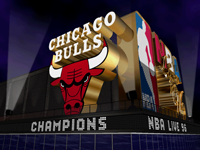Report: Jimmy Butler expected to be named Most Improved Player
I'm obviously biased but I'd say it's well-deserved, given the jump in his production and emergence as an All-Star, while essentially playing the same amount of minutes. I don't have a problem with the award generally going to players who have simply received an increase in minutes - they received an opportunity and made the most of it, so it's a fair call - but that obviously doesn't apply to Butler, so in that respect, he's probably going to be seen as one of the less controversial/more legitimate winners of the award.
Jimmy Butler to win MIP
14 posts
• Page 1 of 1
Jimmy Butler to win MIP

Contact: Email | X | Bluesky
Modding Topics: NBA 2K10 | NBA Live 08 | NBA Live 07 | NBA Live 06 | NBA 2K6 | NBA Live 2005 | NBA Live 2004 | NBA Live 96
Story Topics: NBA Live 16 | NBA 2K14 | NBA 2K13 | NBA Live 06 (Part 2) | NBA Live 06 (HOF) | NBA Live 2004 (HOF)
NLSC: Podcast | The Friday Five | Monday Tip-Off | Wayback Wednesday | Facebook | X | YouTube | Instagram | Bluesky
Donations/Support: Patreon | PayPal
-

Andrew - Retro Basketball Gamer

- Posts: 115196
- Joined: Thu Aug 22, 2002 8:51 pm
- Location: Australia
Re: Jimmy Butler to win MIP
Although Jimmy has improved his shooting, I think he was already pretty good to begin with and also had injuries to teammates which gave him an opportunity to shine.
I think someone like Whiteside who went from someone who was out of the league into a starting center is more of an improvement
I think someone like Whiteside who went from someone who was out of the league into a starting center is more of an improvement

-

[Q] - NBA Live 18 Advocate

- Posts: 14396
- Joined: Tue Oct 01, 2002 8:20 am
- Location: Westside, the best side
Re: Jimmy Butler to win MIP
I don't know. I get the feeling awards system is somewhat being abused to advertise the league stars.
My personal pick would have been Rudy Gobert. It wasn't even close imho. But it's subjective.
BTW, can I suggest a poll next time whom our Forum guys think should have won? ; - ) just for fun.
My personal pick would have been Rudy Gobert. It wasn't even close imho. But it's subjective.
BTW, can I suggest a poll next time whom our Forum guys think should have won? ; - ) just for fun.

Enjoy! <3 Jao
-

NovU - Crap, what am I going to brag about now?
- Posts: 11325
- Joined: Tue Jun 05, 2007 6:50 pm
Re: Jimmy Butler to win MIP
my vote for MIP goes to rondo. dude killed it this season
-

Sauru - Posts: 7726
- Joined: Sat Sep 06, 2003 11:01 am
Re: Jimmy Butler to win MIP
I would like to nominate Sauru for the NLSC MRP award (Most Regressed Poster).

Enjoy! <3 Jao
-

NovU - Crap, what am I going to brag about now?
- Posts: 11325
- Joined: Tue Jun 05, 2007 6:50 pm
Re: Jimmy Butler to win MIP
Whiteside: On top of being the guy who went from barely playing to actually being in the rotation when he got another shot in the league, it's a bit hard to improve on the year previous, when you weren't in the league that season.
Gobert: Went from under ten minutes per game to 26 minutes per game. Per 36, his numbers weren't up that much.
As I mentioned, I'm not philosophically opposed to players whose production went up because their minutes did winning the award. Again, they got an opportunity, and they made the most out of it. However, when you've got a player who posted better stats over last season across the board, including several career highs, went from being a good role player to an All-Star/possible cornerstone player, and all that in the same amount of playing time as the year before...I think that's who has the edge in the Most Improved category. You can't attribute it to "Well, of course he put up better numbers, he's actually getting to play now"; Gasol came in, Rose came back and played 51 games, and Butler played great no matter whether the latter was in the lineup or not.
Or, you know, the stars are the ones having the best performances (that's why they're considered stars, after all), and thus are the ones who are earning the most recognition and awards.
Who should be winning the awards instead? Benchwarmers averaging two points per game? Role players who aren't putting up big numbers, but have tremendous efficiency because they're not the focus of the defense and aren't called upon to do much?
To throw a Box Score Geeks-style analogy out there: Do you give the Academy Award for Best Picture to the best film? Or do you say "You know, it earned enough it at the box office, it has almost universally positive reviews, everyone knows it's the best picture, so there's no need to promote it. Let's give the Oscar to The Hangover Part 84!"
Gobert: Went from under ten minutes per game to 26 minutes per game. Per 36, his numbers weren't up that much.
As I mentioned, I'm not philosophically opposed to players whose production went up because their minutes did winning the award. Again, they got an opportunity, and they made the most out of it. However, when you've got a player who posted better stats over last season across the board, including several career highs, went from being a good role player to an All-Star/possible cornerstone player, and all that in the same amount of playing time as the year before...I think that's who has the edge in the Most Improved category. You can't attribute it to "Well, of course he put up better numbers, he's actually getting to play now"; Gasol came in, Rose came back and played 51 games, and Butler played great no matter whether the latter was in the lineup or not.
NovU wrote:I don't know. I get the feeling awards system is somewhat being abused to advertise the league stars.
Or, you know, the stars are the ones having the best performances (that's why they're considered stars, after all), and thus are the ones who are earning the most recognition and awards.
Who should be winning the awards instead? Benchwarmers averaging two points per game? Role players who aren't putting up big numbers, but have tremendous efficiency because they're not the focus of the defense and aren't called upon to do much?
To throw a Box Score Geeks-style analogy out there: Do you give the Academy Award for Best Picture to the best film? Or do you say "You know, it earned enough it at the box office, it has almost universally positive reviews, everyone knows it's the best picture, so there's no need to promote it. Let's give the Oscar to The Hangover Part 84!"

Contact: Email | X | Bluesky
Modding Topics: NBA 2K10 | NBA Live 08 | NBA Live 07 | NBA Live 06 | NBA 2K6 | NBA Live 2005 | NBA Live 2004 | NBA Live 96
Story Topics: NBA Live 16 | NBA 2K14 | NBA 2K13 | NBA Live 06 (Part 2) | NBA Live 06 (HOF) | NBA Live 2004 (HOF)
NLSC: Podcast | The Friday Five | Monday Tip-Off | Wayback Wednesday | Facebook | X | YouTube | Instagram | Bluesky
Donations/Support: Patreon | PayPal
-

Andrew - Retro Basketball Gamer

- Posts: 115196
- Joined: Thu Aug 22, 2002 8:51 pm
- Location: Australia
Re: Jimmy Butler to win MIP
Fair points all across. Butler's improvement is in no doubt.
I guess that's the thing though that I got the feeling Gobert's improvement has been vastly underrated because people merely saw it as production increase as minutes and role increased.
I guess that's the thing though that I got the feeling Gobert's improvement has been vastly underrated because people merely saw it as production increase as minutes and role increased.

Enjoy! <3 Jao
-

NovU - Crap, what am I going to brag about now?
- Posts: 11325
- Joined: Tue Jun 05, 2007 6:50 pm
Re: Jimmy Butler to win MIP
Gobert's definitely someone to look out for, and he could well be winning this award next year. I think the Jazz made the right call with the Kanter trade; I didn't see many of their games this year, but I liked what I saw of Gobert in the Rising Stars Challenge. He's got a bright future.
He's also got one of the best nationality-based nicknames in the league, in "The Stifle Tower". That's right up there with Andrei Kirilenko's "AK-47". Of course, after the Spurs' post-Game 7 commiserations, Patty Mills might have been The Chunder from Down Under...
He's also got one of the best nationality-based nicknames in the league, in "The Stifle Tower". That's right up there with Andrei Kirilenko's "AK-47". Of course, after the Spurs' post-Game 7 commiserations, Patty Mills might have been The Chunder from Down Under...

Contact: Email | X | Bluesky
Modding Topics: NBA 2K10 | NBA Live 08 | NBA Live 07 | NBA Live 06 | NBA 2K6 | NBA Live 2005 | NBA Live 2004 | NBA Live 96
Story Topics: NBA Live 16 | NBA 2K14 | NBA 2K13 | NBA Live 06 (Part 2) | NBA Live 06 (HOF) | NBA Live 2004 (HOF)
NLSC: Podcast | The Friday Five | Monday Tip-Off | Wayback Wednesday | Facebook | X | YouTube | Instagram | Bluesky
Donations/Support: Patreon | PayPal
-

Andrew - Retro Basketball Gamer

- Posts: 115196
- Joined: Thu Aug 22, 2002 8:51 pm
- Location: Australia
Re: Jimmy Butler to win MIP
Sure, you can't technically improve on your last nba season if you weren't in the nba, but the point is he sucked so bad he wasn't good enough to be in the nba last year

-

[Q] - NBA Live 18 Advocate

- Posts: 14396
- Joined: Tue Oct 01, 2002 8:20 am
- Location: Westside, the best side
Re: Jimmy Butler to win MIP
Or the year before that, as he was spending time in China, Lebanon, and the D-League. In any event, it's not exactly what the MIP is about, and a player who shows significant improvement without a significant increase in minutes has to have the edge over someone whose stats are better simply because he's now getting court time, or hasn't been in the league for a couple of years.

Contact: Email | X | Bluesky
Modding Topics: NBA 2K10 | NBA Live 08 | NBA Live 07 | NBA Live 06 | NBA 2K6 | NBA Live 2005 | NBA Live 2004 | NBA Live 96
Story Topics: NBA Live 16 | NBA 2K14 | NBA 2K13 | NBA Live 06 (Part 2) | NBA Live 06 (HOF) | NBA Live 2004 (HOF)
NLSC: Podcast | The Friday Five | Monday Tip-Off | Wayback Wednesday | Facebook | X | YouTube | Instagram | Bluesky
Donations/Support: Patreon | PayPal
-

Andrew - Retro Basketball Gamer

- Posts: 115196
- Joined: Thu Aug 22, 2002 8:51 pm
- Location: Australia
Re: Jimmy Butler to win MIP
Deserved. 
- iamSamke
- Posts: 2080
- Joined: Wed Oct 15, 2014 1:11 am
- Location: Serbia
Re: Jimmy Butler to win MIP
- Code: Select all
Name / Team 1st (5 pts) 2nd (3 pts) 3rd (1 pt) TOTAL
Jimmy Butler (Chicago) 92 23 6 535
Draymond Green (Golden State) 11 43 16 200
Rudy Gobert (Utah) 12 32 33 189
Hassan Whiteside (Miami) 5 12 27 88
Klay Thompson (Golden State) 2 8 8 42
Anthony Davis (New Orleans) 4 2 1 27
Giannis Antetokounmpo (Milw) 1 3 8 22
Donatas Motiejunas (Houston) -- 1 4 7
Dennis Schröder (Atlanta) -- 1 3 6
DeMarre Carroll (Atlanta) 1 -- -- 5
Tyler Zeller (Boston) 1 -- -- 5
DeMarcus Cousins (Sacramento) -- 1 1 4
Khris Middleton (Milwaukee) -- -- 4 4
Kyrie Irving (Cleveland) -- -- 3 3
Victor Oladipo (Orlando) -- 1 -- 3
DeAndre Jordan (L.A. Clippers) -- 1 -- 3
Jae Crowder (Boston) -- 1 -- 3
Kentavious Caldwell-Pope (Detroit) -- -- 2 2
Nikola Vucevic (Orlando) -- -- 2 2
Robert Covington (Philadelphia) -- -- 1 1
Tyreke Evans (New Orleans) -- -- 1 1
Derrick Favors (Utah) -- -- 1 1
Marc Gasol (Memphis) -- -- 1 1
Tobias Harris (Orlando) -- -- 1 1
Gordon Hayward (Utah) -- -- 1 1
George Hill (Indiana) -- -- 1 1
Enes Kanter (Oklahoma City) -- -- 1 1
Brandon Knight (Phoenix) -- -- 1 1
Kawhi Leonard (San Antonio) -- -- 1 1
Meyers Leonard (Portland) -- -- 1 1
-

benji - Posts: 14545
- Joined: Sat Nov 16, 2002 9:09 am
Re: Jimmy Butler to win MIP
Not too much of a problem with the Butler pick.
Schroder's a pretty good pick, he was useless last year. Middleton had a nice improvement. Green's evolution was great.
Thinking about it, I'd like to dump the individual award for a team. Schroder-Butler-Middleton-Green-Gobert. Boom.
Schroder's a pretty good pick, he was useless last year. Middleton had a nice improvement. Green's evolution was great.
Thinking about it, I'd like to dump the individual award for a team. Schroder-Butler-Middleton-Green-Gobert. Boom.
-

benji - Posts: 14545
- Joined: Sat Nov 16, 2002 9:09 am
Re: Jimmy Butler to win MIP
The All-Improved Team. Why not? 

Contact: Email | X | Bluesky
Modding Topics: NBA 2K10 | NBA Live 08 | NBA Live 07 | NBA Live 06 | NBA 2K6 | NBA Live 2005 | NBA Live 2004 | NBA Live 96
Story Topics: NBA Live 16 | NBA 2K14 | NBA 2K13 | NBA Live 06 (Part 2) | NBA Live 06 (HOF) | NBA Live 2004 (HOF)
NLSC: Podcast | The Friday Five | Monday Tip-Off | Wayback Wednesday | Facebook | X | YouTube | Instagram | Bluesky
Donations/Support: Patreon | PayPal
-

Andrew - Retro Basketball Gamer

- Posts: 115196
- Joined: Thu Aug 22, 2002 8:51 pm
- Location: Australia
14 posts
• Page 1 of 1
Who is online
Users browsing this forum: No registered users and 6 guests
